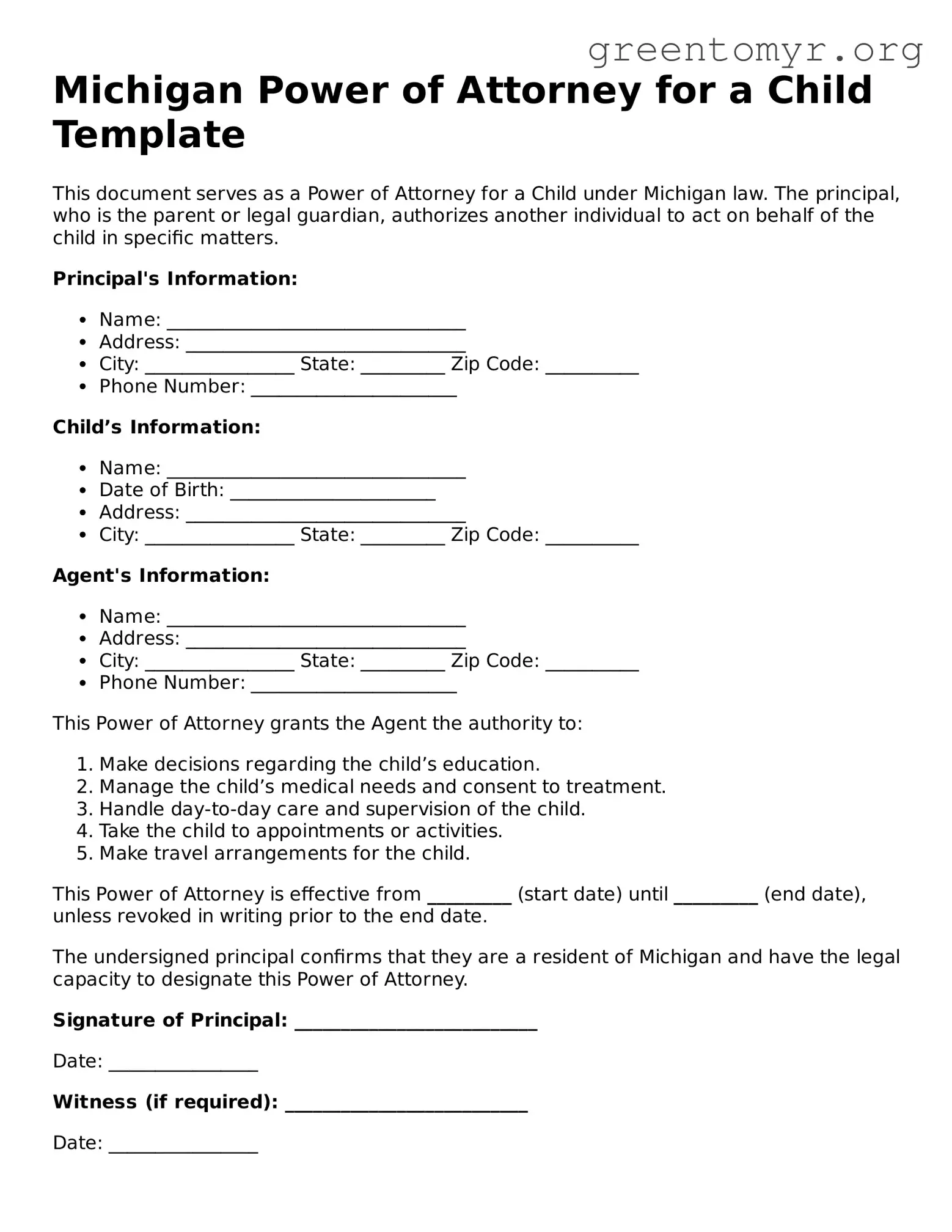Filling out the Michigan Power of Attorney for a Child form can be a straightforward process, but several common mistakes can complicate matters for parents and guardians. Understanding these pitfalls can help ensure that the form serves its intended purpose effectively. Here are nine mistakes to keep in mind.
One of the most frequent issues is failing to include all required information. The form requires specific details about both the child and the appointed agent. Omitting critical information such as addresses or full names can lead to delays or complications. Ensure every section is filled out completely, as missing data can render the document invalid.
Another mistake people often make is selecting an agent without considering their availability and reliability. It’s important that the chosen person is not just someone you trust but also someone who is willing and able to step up when needed. If this person is unavailable during an emergency, it defeats the purpose of having a Power of Attorney.
Many individuals overlook the importance of having the form signed and notarized. In Michigan, the Power of Attorney for a Child must be signed by the parent or legal guardian and notarized. Without these steps, the document could be challenged or disregarded by authorities. Properly executing this form is a critical legal step.
Some people may inaccurately believe that the form will automatically cover all potential situations. It’s crucial to be specific about the powers you are granting. Providing vague language can lead to confusion when decisions need to be made about the child's care or welfare. Clear and concise language helps prevent misunderstandings later on.
Additionally, neglecting to provide a clear duration for the Power of Attorney can lead to complications. Specify whether the arrangement is temporary or permanent. If no timeframe is indicated, it could lead to ambiguity about the agent’s authority in the future.
Failing to communicate with the appointed agent can be a detrimental mistake. Once the Power of Attorney form is completed, it’s vital to discuss it thoroughly with the chosen individual. This ensures they are aware of their responsibilities and prepared to act if necessary. A thoughtful discussion can also clarify any expectations and reduce confusion.
Many parents also make the mistake of not keeping multiple copies of the Power of Attorney form. It’s wise to have several copies readily available. This makes it easier to provide a copy to schools, medical providers, and other relevant parties when the situation arises. Keeping track of the document ensures it can be accessed quickly when needed.
Another common error is not reviewing the document periodically. Life circumstances change, and the designated agent may no longer be the best choice over time. Regularly reviewing and updating the Power of Attorney can help reflect current circumstances and relationships. Keep the form current to avoid potential issues in the future.
Lastly, people often fail to follow up after submitting the Power of Attorney. Whether it is ensuring that the documentation has been accepted or that key parties have been informed, this step is critical. You should take proactive measures to confirm that everything is in order. This diligence provides peace of mind knowing that arrangements are in place for the child’s welfare.
In conclusion, filling out the Michigan Power of Attorney for a Child form requires careful attention to detail and an understanding of responsibilities. By avoiding these common mistakes, you can ensure that the form serves its intended purpose effectively and without complications.
